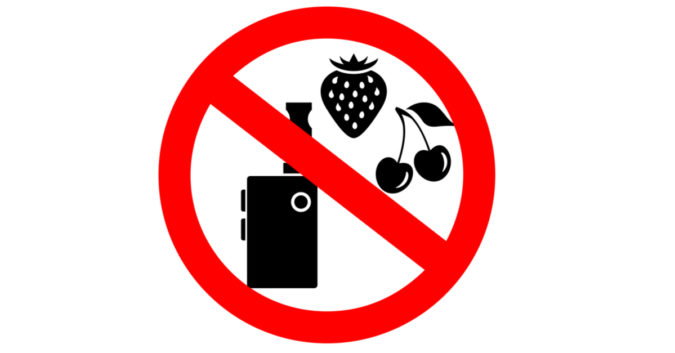As one of the first actions of the new year, the Trump administration announced a nationwide ban of many popular flavored vaping products. The new regulations are the latest government response to the worrying spike in youth vaping and the recent outbreak of vaping-related injuries and deaths across the country.
The U.S. Food and Drug Administration (FDA), which oversaw the creation of the new policies, will begin enforcing them on February 1. That gives companies 30 days to ensure that they are neither selling illegal vaping products, nor marketing legal products to underage users.
Which Products Are Affected by the 2020 Vaping Ban?
For the purposes of regulation, the FDA includes all vaping devices in the category of products known as electronic nicotine delivery systems, or ENDS. This broad group covers nicotine vaporizers of all kinds, e-cigarettes, cigalikes, e-cigars. In short, anything that delivers aerosolized e-liquid when inhaled is considered an ENDS.
The new ban differentiates between 2 different types of ENDS:
- Cartridge-based: systems that use pre-filled cartridges of e-liquid.
- Open tank: systems that allow consumers and shops to prepare their own e-liquid.
Under the new rules, companies are prohibited from the manufacture, distribution, and sale of flavored cartridge-based ENDS. Tobacco and menthol-flavored cartridges remain legal.
Importantly, the flavor ban does not apply to vaporizers with open tank systems. Adult users of those devices will still be able to purchase e-liquids of varying flavors through proper channels.
Why Did Cartridge-Based Vapes Get Singled Out?
According to the agency’s research, underage vapers overwhelmingly prefer cartridge-based e-cigarettes compared to open tank systems, which are favored by adults who frequent vape shops.
Cartridge-based vapes are small, able to be used discreetly, and easy to conceal. Millions of teachers and parents have been frustrated by the ability of underage users to hide their vaping at school and home.
“As we work to combat the troubling epidemic of youth e-cigarette use,” said FDA Commissioner Stephen M. Hahn in an associated statement, “the enforcement policy we’re issuing today confirms our commitment to dramatically limit children’s access to certain flavored e-cigarette products we know are so appealing to them.”
Menthol Vaping Cartridges Still on the Market
Some public health advocates had hoped for a blanket flavor ban for all e-cigarettes that included menthol.
Erika Sward, a spokeswoman for the American Lung Association, expressed dissatisfaction with the incomplete ban. “Flavors attract kids, and menthol is a flavor,” she told the New York Times. “It really helps to numb the senses and makes the poison go down easier.”
On the other side, the vaping industry says that a total flavor ban would destroy the small businesses that have emerged to support a legal vaping market. Flavor restrictions of any kind, they argue, get in the way of adult consumers who are using the more palatable flavors to quit traditional smoking.
This flavor debate has been going on since e-cigarettes first hit the market, but it came to a head last year amidst the unprecedented surge in underage usage and the emergence of a nationwide vaping illness, which killed 57 people and injured more than 2,500 across the nation.
Does the New Vaping Ban Strike a Healthy Balance?
Commissioner Hahn pitched the latest set of rules from the FDA as a working compromise based on the best available science. It is known that youth addiction to nicotine affects brain development and carries other major, life-long health consequences. This has to be weighed against any claims that ENDS can help smokers quit. Hahn said:
“We believe this policy balances the urgency with which we must address the public health threat of youth use of e-cigarette products with the potential role that e-cigarettes may play in helping adult smokers transition completely away from combustible tobacco to a potentially less risky form of nicotine delivery.”
Right now, the lifetime health risks of ENDS are barely understood. They may help adult smokers quit, but the scientific data isn’t there yet. Popular products like JUUL have only been on the market for several years. Little serious research was done by ENDS manufacturers, and the results coming out now raise alarms.
Last week, researchers from Harvard published a study that said e-cigarette products made by JUUL were contaminated with a microbial toxin that can cause long-term lung damage. The study was the latest in a string of findings from universities and hospitals that are trying to figure out the risks of products millions of kids are already using.
FDA Message to Big Vape: Test Your Products if You Want to Keep Selling Them
Moving forward, companies will have to submit scientific data with the agency about their product’s safety, risks, and public health impact. They have until May 12 of this year to get such premarket applications to the FDA, or manufacturers risk a series of escalating enforcement actions.
“We will not stand idly by as this crisis among America’s youth grows and evolves,” said Alex Azar, U.S. Secretary of Health and Human Services. “We will continue monitoring the situation and take further actions as necessary.”
